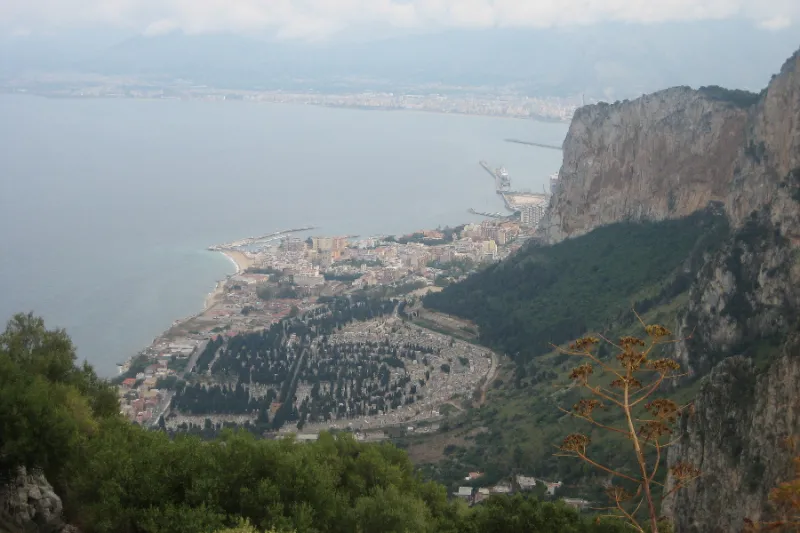
Rome Newsroom, Nov 3, 2021 / 13:00 pm (CNA).
As the Catholic archbishop of Palermo paid a visit to the Sicilian city’s largest cemetery on All Souls’ Day, he passed through a tent filled with stacks of coffins and blessed the 800 bodies still awaiting burial.
“Palermo needs new cemetery spaces where we can bury or cremate our dead, to keep them with dignity, visit them, commemorate them. No more coffins piled up,” Archbishop Corrado Lorefice said in his homily on Nov. 2.
The archbishop offered Mass in the cemetery chapel on the grounds of Palermo’s Santa Maria dei Rotoli cemetery.
He lamented that “hundreds of our dearly departed have not even found a decent burial place for a long time because of human neglect and the ignominy of those who want to make money even in the most decisive and disruptive moment of the mystery of life, which is death.”
The Rotoli cemetery has a large number of unburied coffins due to an administrative backlog and a spike in COVID-19 deaths, according to an Insider report from earlier this year.
The archbishop’s homily also indicated that criminal interests have been involved in the cemetery’s neglect.
“We must care for our cemeteries … No neglect, no destruction, no illegal business, no shady or criminal interests should desecrate these sacred places and the consciences of those who have the right to honor the bodies of their dead,” he said.
Lorefice expressed dismay that after the outbreak of the pandemic, a time when so many people experienced “a lonely death,” the people of Palermo now also experience “the drama of a failure to give a decent burial to so many of our dear departed fellow citizens, our relatives, and friends.”
Palermo’s Rotoli cemetery, located on Mount Pellegrino, was opened in 1837 after a cholera outbreak meant that the city’s historic cemetery could no longer accommodate further bodies.
The archbishop recalled that St. Rosalia of Palermo, the 12th-century hermit, lived in solitary prayer on Mount Pellegrino. Sicilians credit a procession of St. Rosalia’s relics through the streets of Palermo in 1625 with helping to bring an end to a plague.
“We must care for our cemeteries that hold the bodies of our loved ones awaiting this redemption, life, and fullness of freedom. We must make them welcoming, usable, spacious,” Lorefice said.
“Let us rest our dead with dignity and in peace while we await the resurrection, waiting to be able to embrace each other again in eternal life,” he said.
If you value the news and views Catholic World Report provides, please consider donating to support our efforts. Your contribution will help us continue to make CWR available to all readers worldwide for free, without a subscription. Thank you for your generosity!
Click here for more information on donating to CWR. Click here to sign up for our newsletter.





Leave a Reply